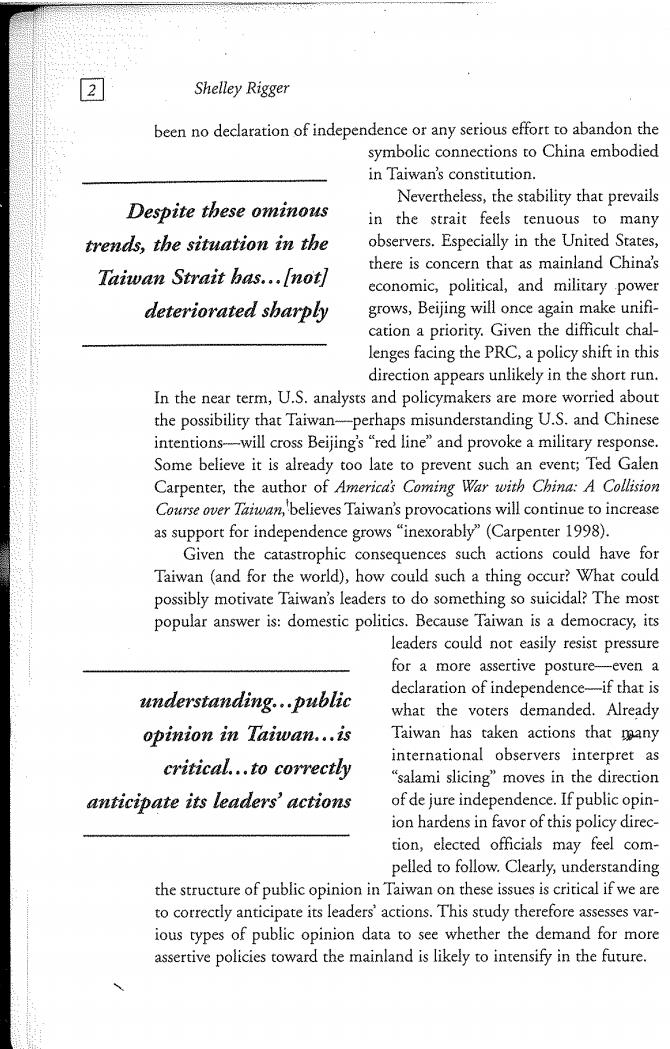正在加载图片...

Shelley Rigger been no declaration of independence or any serious effort to abandon the symbolic connections to China embodied in Taiwan's constitution. Nevertheless,the stability that prevails Despite these ominous in the strait feels tenuous to many trends,the situation in the observers.Especially in the United States, there is concern that as mainland China's Taiwan Strait bas...[not] economic,political,and military power deteriorated sharply grows,Beijing will once again make unifi- cation a priority.Given the difficult chal- lenges facing the PRC,a policy shift in this direction appears unlikely in the short run. In the near term,U.S.analysts and policymakers are more worried about the possibility that Taiwan-perhaps misunderstanding U.S.and Chinese intentions-will cross Beijing's"red line"and provoke a military response. Some believe it is already too late to prevent such an event;Ted Galen Carpenter,the author of Americas Coming War with China:A Collision Course over Tiwan,believes Taiwan's provocations will continue to increase as support for independence grows"inexorably"(Carpenter 1998). Given the catastrophic consequences such actions could have for Taiwan (and for the world),how could such a thing occur?What could possibly motivate Taiwan's leaders to do something so suicidal?The most popular answer is:domestic politics.Because Taiwan is a democracy,its leaders could not easily resist pressure for a more assertive posture-even a understanding...public declaration of independence-if that is what the voters demanded.Already opinion in Taiwan...is Taiwan has taken actions that many critical...to correctly international observers interpret as “salami slicing”moves in the direction anticipate its leaders'actions of de jure independence.If public opin- ion hardens in favor of this policy direc- tion,elected officials may feel com- pelled to follow.Clearly,understanding the structure of public opinion in Taiwan on these issues is critical if we are to correctly anticipate its leaders'actions.This study therefore assesses var- ious types of public opinion data to see whether the demand for more assertive policies toward the mainland is likely to intensify in the future